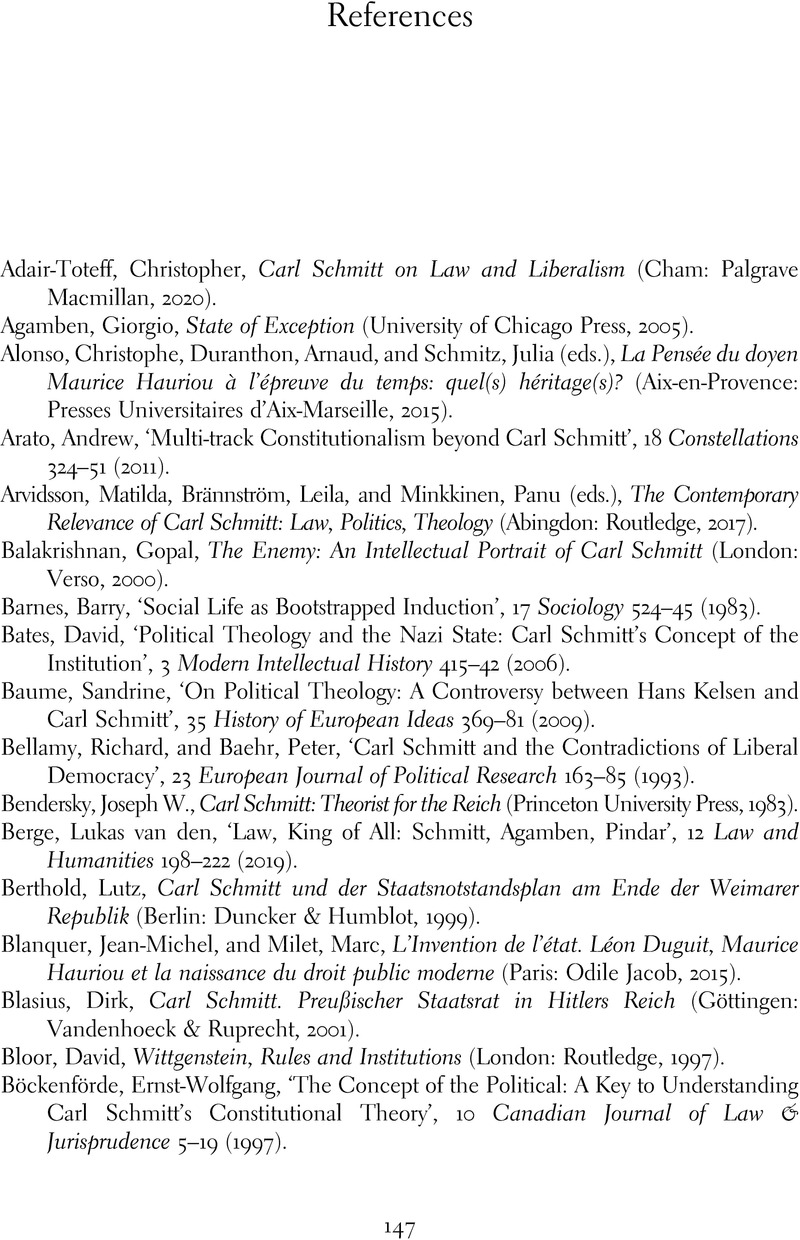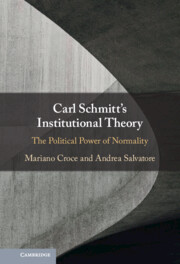Book contents
- Carl Schmitt’s Institutional Theory
- Carl Schmitt’s Institutional Theory
- Copyright page
- Contents
- Acknowledgements
- Introduction
- 1 What Is Exceptionalist Decisionism?
- 2 Looking Backwards
- 3 How Exceptionalist Decisionism Came About
- 4 A Fresh Start
- 5 Out of the Exceptionalist Quagmire
- 6 The Politics of Normality
- 7 Doing Away with Politics
- Conclusion
- References
- Index
- References
References
Published online by Cambridge University Press: 23 June 2022
- Carl Schmitt’s Institutional Theory
- Carl Schmitt’s Institutional Theory
- Copyright page
- Contents
- Acknowledgements
- Introduction
- 1 What Is Exceptionalist Decisionism?
- 2 Looking Backwards
- 3 How Exceptionalist Decisionism Came About
- 4 A Fresh Start
- 5 Out of the Exceptionalist Quagmire
- 6 The Politics of Normality
- 7 Doing Away with Politics
- Conclusion
- References
- Index
- References
Summary

- Type
- Chapter
- Information
- Carl Schmitt's Institutional TheoryThe Political Power of Normality, pp. 147 - 156Publisher: Cambridge University PressPrint publication year: 2022



